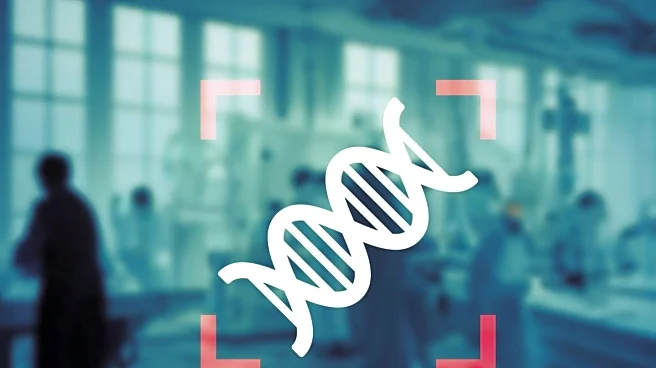What's Happening?
The Pharmaceutical Journal has reported significant developments in health news, including a promising gene therapy for Huntington's disease and challenges related to medicines misinformation. A phase I/II study of the drug AMT-130 has shown potential in slowing the progression of Huntington's disease, offering hope for improved quality of life for patients. The study indicates a 75% reduction in disease progression at high doses. Additionally, misinformation about medicines, such as claims by President Trump linking paracetamol use in pregnancy to autism, has prompted healthcare professionals to emphasize the importance of seeking reliable medical advice. Pharmacists are being urged to play a key role in combating misinformation and promoting accurate health information.
Why It's Important?
The potential breakthrough in Huntington's disease treatment could significantly impact patients and families affected by this debilitating condition, offering a new avenue for managing the disease. The misinformation surrounding medicines, particularly during pregnancy, poses risks to public health, highlighting the need for accurate information dissemination. Pharmacists, as trusted healthcare providers, are positioned to correct false narratives and ensure patients receive sound medical advice. This underscores the broader challenge of combating misinformation in healthcare, which can lead to harmful health decisions and undermine public trust in medical guidance.
What's Next?
The ongoing development of AMT-130 will likely continue to be monitored closely, with further studies needed to confirm its efficacy and safety. In terms of misinformation, healthcare organizations may increase efforts to educate the public and counteract false claims, potentially involving more proactive communication strategies and collaborations with social media platforms to address misleading content. The role of pharmacists in public health education may expand, with initiatives to enhance their capacity to provide accurate information and support informed health decisions.









